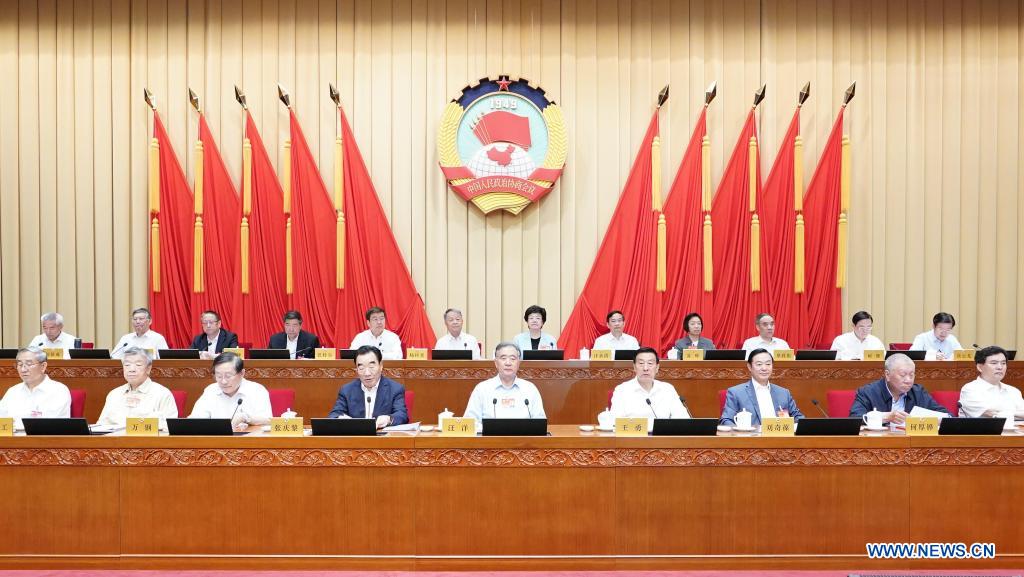National political advisors discuss implementing five-year plan

Wang Yang, a member of the Standing Committee of the Political Bureau of the Communist Party of China Central Committee and chairman of the Chinese People's Political Consultative Conference (CPPCC) National Committee, attends the opening meeting of the 17th session of the Standing Committee of the CPPCC National Committee in Beijing, capital of China, June 21, 2021. (Xinhua/Shen Hong)
The Standing Committee of the National Committee of the Chinese People's Political Consultative Conference (CPPCC) on Monday opened its 17th session on implementing the 14th Five-Year Plan (2021-2025) and fostering the new development paradigm.
Wang Yang, a member of the Standing Committee of the Political Bureau of the Communist Party of China Central Committee and chairman of the CPPCC National Committee, attended the opening meeting.
State Councilor Wang Yong delivered a report and heard suggestions from members of the Standing Committee of the CPPCC National Committee at the meeting.
Pushing implementation of the 14th Five-Year Plan and fostering the new development paradigm are of great and far-reaching significance in fully building a modern socialist country, Wang Yong pointed out.
He urged coordinated efforts to properly handle relations between supply and demand, independence and opening up, the whole and the part, government and market, and development and security, among others factors.
The targets and tasks must be further detailed, while the unified planning system must be improved, Wang Yong said, urging solid work on key projects and improved policy coordination to promote the full implementation of the 14th Five-Year Plan.
Zhang Qingli, vice chairman of the CPPCC National Committee, who presided over the meeting, asked members of the Standing Committee of the CPPCC National Committee to pool their wisdom and make contributions to the implementation of the plan.
During the session, the political advisors will hold discussions on a range of topics including furthering supply-side structural reform, pursuing the strategy of expanding domestic demand, and speeding up independent innovation in science and technology.